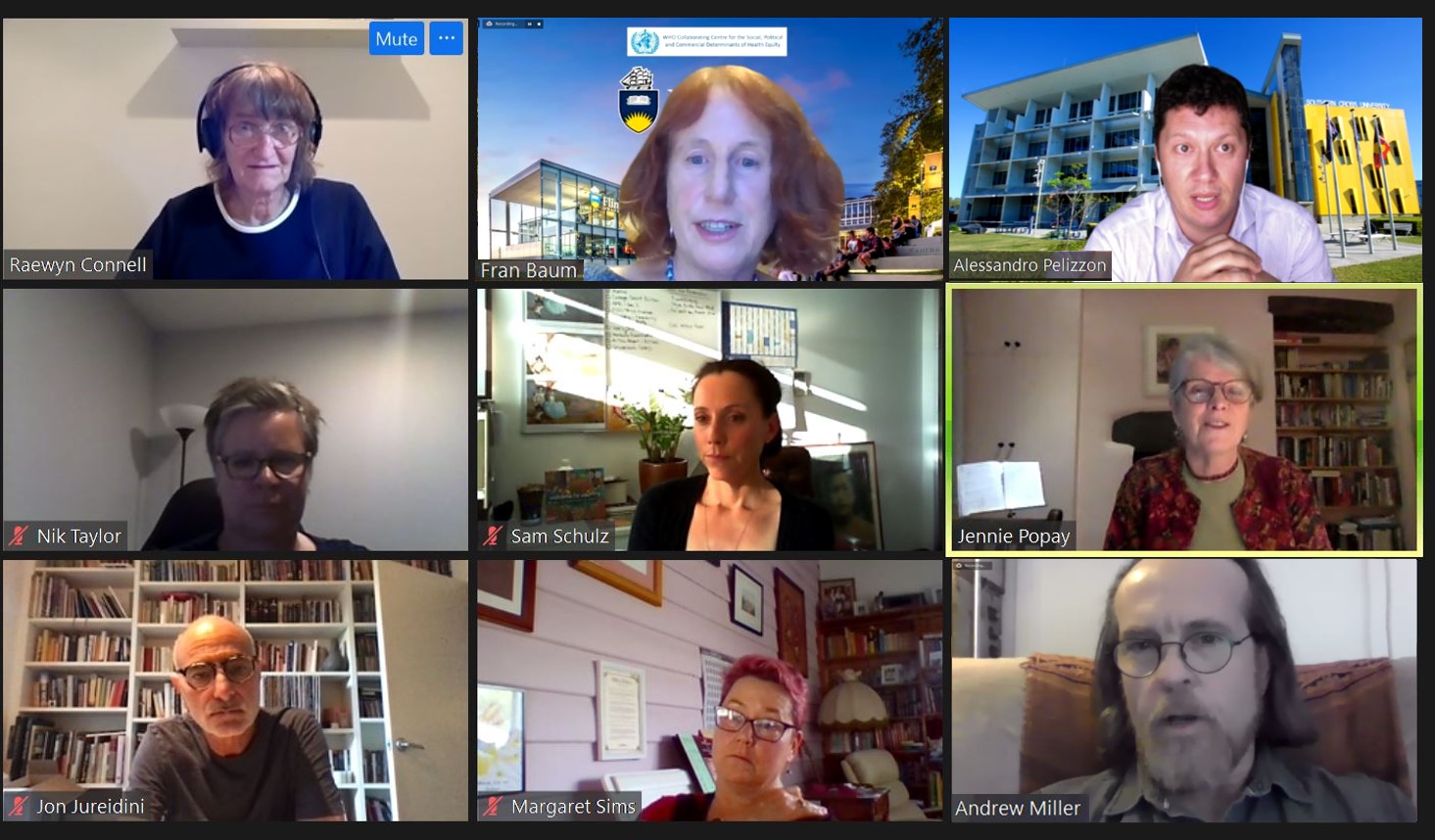
The WHO Collaborating Centre on the Social, Political and Commercial Determinants of Health hosted a webinar examining the trends in the management and operation of public universities.
The event featured the authors of four books which had given consideration to the topic. Margaret Sims (Bullshit Towers: Neo-liberalism and Managerialism in Universities) presented first and described the use of obfuscating language in Universities which is routinely used to cover the harshness of management decisions.
Jon Jureidini (The Illusion of Evidence -based Medicine) spoke about the corporate capture of university research especially in relation to the pharmaceutical industry. He described the conflicts of interest that are raised by corporate sponsorship of university courses and research. He noted that while public funding is highly competitive “funding from industry is there for the asking”.
Nik Taylor (Neoliberalization, Universities and the Public Intellectual Species, Gender and Class and the Production of Knowledge) described the market university as an essentially masculinist institution which works in favour of private rather than public interests. She argued for universities to be organised and managed so that they can work for the public good and rest on social justice principles. She summed this up by saying universities should produce “knowledge for people not profits”.
Our final speaker was Raewyn Connell (The Good University) who focussed on what the characteristics of a good university should be. She noted that despite the rhetoric of many university managers concerning competition between universities there are many examples of co-operation. Universities are not the separate and competing forms as imagined by neoliberalism. Professor Connell urged universities to engage in organisational redesign and in doing this to draw on models of industrial democracy. She also stressed the importance of studying the different forms of universities that have existed historically and do today including the University of the South Pacific which incorporates Indigenous knowledges and the Free Universities that flourished in the 1970s. She also reminded the audience that there never had been a golden age of universities and that before the neoliberal onslaught many universities were elitist and patriarchal.
The webinar also featured four commentators: Andrew Miller (President, Flinders University Branch NTEU) from a union perspective, Professor Jennie Popay, (Lancaster University UK) on the downside of the evidence based medicine movement, Dr. Sam Schulz (senior lecturer, Sociology of Education, Flinders University) who stressed the ways in which knowledge which is critical of the direction of neo-liberalism and raises critical consciousness is often silenced in universities and the disciplines producing this knowledge defunded; and Dr Alessandro Pelizzon (School of Law and Justice. Southern Cross University) who stressed the importance of reformed governance of universities including the restoration of full staff and student representation on University Councils.
The discussions in the webinar were rich, thought provoking and threw out a challenge to everyone in a university to rethink its purpose and determine how we can evolve universities that work for wellbeing and health rather than profit and products that threatened health.
The webinar is available to view here.

